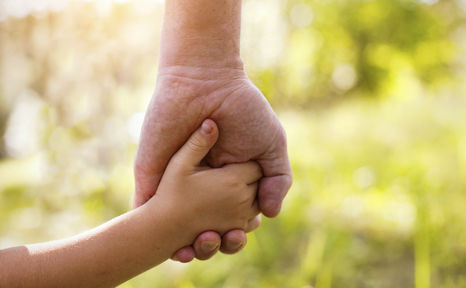

July is Juvenile Arthritis Awareness Month. About 300,000 children in the U.S. live with some form of arthritis.

Almost 52 million American adults have been diagnosed with some form of arthritis. That figure is expected to increase to 67 million people by 2030. In fact, the illness is so prevalent it's ranked as the nation's most common cause of disability, according to the Centers for Disease Control and Prevention.
While the disease affects many people ages 65 or older, not much attention is given to juvenile arthritis and the nearly 300,000 children in the United States living with it. July marks Juvenile Arthritis Month, which gives the Arthritis Foundation a chance to shine a light on the issues facing children and their parents.
Juvenile arthritis is a catchall term for a series of autoimmune and inflammatory diseases that include chronic illnesses such as juvenile lupus, fibromyalgia, or mixed connective tissue disease. The phrase also encompasses juvenile idiopathic arthritis, formerly known as juvenile rheumatoid arthritis, the most common form found in children.
According to Johns Hopkins Medicine, the majority of children diagnosed with juvenile idiopathic arthritis do not carry the disease with them into adulthood. However, more serious forms that greatly affect the body’s joints or organs can become chronic.
Recognizing symptoms can be difficult, especially because many people don't associate arthritis with children. Early signs can include swollen, stiff, or warm joints, high fever, fatigue, rash, and swollen lymph nodes.
Chris Nieto of Kyle, Texas, told U.S. News and World Report that his 10-month-old daughter Mia woke up crying with a 105 degree fever and a painful wrist. The infant's fever lasted for over a month. Nieto and his wife were surprised when doctors diagnosed their daughter with juvenile idiopathic arthritis.
"Any movement of her joints was painful," Nieto said. "In hindsight, we realized, even changing her diaper—we didn't know we were causing pain, because her joints were inflamed."
According to the Arthritis Foundation, doctors don’t know what causes most forms of juvenile arthritis. Some experts believe it could be genetic.
There is no cure for juvenile arthritis, but early detection and treatment can counter the illness and remission is sometimes possible. Over-the-counter drugs such as ibuprofen or anti-rheumatic prescription medications such as methotrexate can be used to treat symptoms, along with a combination of diet, exercise and regular eye exams.
The right doctor, treatment, and therapy can lead to healthier and happier kids. All three, plus the support of her parents, got Mia Nieto crawling again. Now at age 11, she spends summers camping with her little sister.
Understanding Juvenile Arthritis
Parenting a Child with Juvenile Arthritis
Do We Ever Really Grow Out of Our Growing Pains?
Copyright © www.orthopaedics.win Bone Health All Rights Reserved